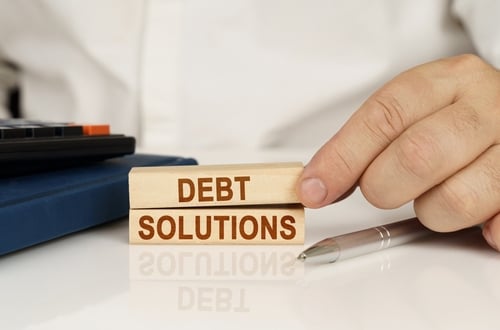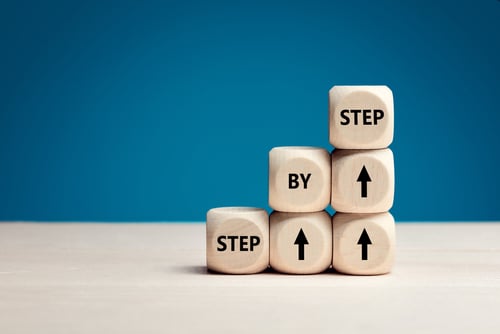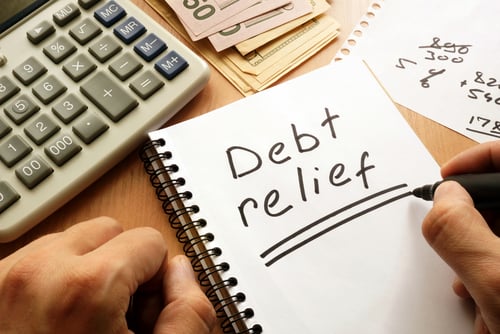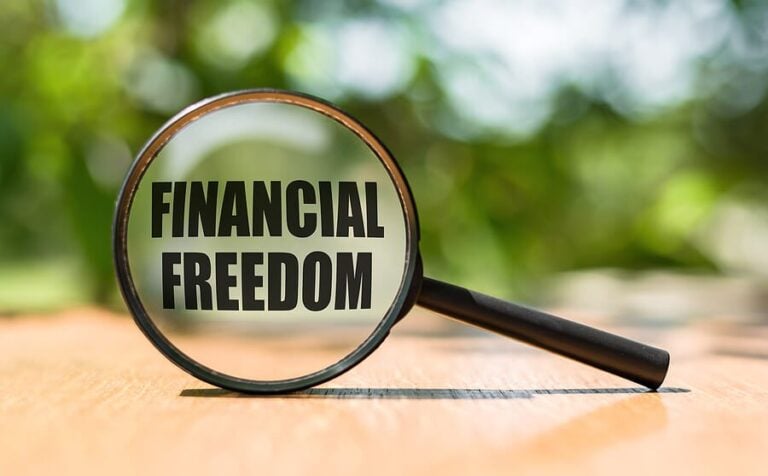Debt relief can be a good idea depending on the situation you are in. The type of debt you have, your financial circumstances, and your ability to commit to a structured plan all play a role in whether debt relief is appropriate. Below, we’ll explore who debt relief is good for and key considerations to help guide your decision.
What Happens When You Apply for Debt Relief?
Applying for debt relief usually starts with a free consultation, where a company looks over your financial situation. You’ll then share details about your income, expenses, and debts so they can see if the program makes sense for you. If you choose to continue, you’ll enter a structured plan designed to help you manage what you owe. From there, the counseling agency may reach out to creditors to try to reduce interest rates, lower balances, or remove certain fees. Rather than paying each creditor directly, you make one monthly payment into a dedicated account, and those funds are later used for settlements. As time goes on, the agency distributes money to your creditors based on the terms of your plan. Debt relief can work, but it isn’t an overnight fix—it takes commitment, patience, and consistency to finish the program successfully.
To Summarize:
- Free consultation: Meet with a debt relief company to review your financial situation.
- Provide financial information: Share details about your income, expenses, and outstanding debts.
- Enroll in a debt relief plan: If it’s a good fit, you’ll join a structured program.
- Negotiation with creditors: Your counseling agency may contact creditors to negotiate lower interest rates, reduced balances, or waived fees.
- Consolidated payments: Instead of paying creditors directly, you make a single payment to a dedicated account that funds future settlements.
- Disbursement of funds: The agency distributes funds to creditors according to your agreed-upon plan.
Debt relief is not a quick fix. It requires patience, commitment, and consistency to complete the program successfully.
Are Debt Relief Programs Good for Everyone?
No, debt relief programs aren’t a good solution for everyone; it depends on your financial situation, type of debts, and commitment to following a structured repayment plan. For example, accredited debt relief programs can be a good idea for those with high-interest credit cards, unsecured personal loans, and medical bills. It’s not going to be helpful for those struggling to pay a mortgage, auto loan, or student loan.
Some debt relief programs require a minimum total debt and a certain income to qualify. Be sure to explore all your options and consult a financial professional to make the best decision for your situation.
When to Consider Debt Relief as an Option
Some key circumstances may encourage you to pursue debt relief, including:
- You’re overwhelmed by high-interest credit card debt.
- You’re only making minimum payments, and your balances aren’t going down.
- You’re starting to miss payments and are falling behind.
- Your debt is holding you back from achieving other financial goals like establishing a strong savings.
If you’re doing all that you can to address your debts but can’t seem to make much progress, debt relief could be a solution to getting your personal finances back on track.
Evaluating Debt Relief Companies and Their Role
Are debt relief companies a good idea? If so, how do you choose the right one? Here are some key things to look out for:
- Accreditation and licensing: Ensure the company is legitimate and compliant. Unfortunately, there are many debt relief scams out there that can hurt individuals looking to better manage their finances.
- Transparent fees: Make sure you understand any associated costs before committing. As you’re managing your debts, you should have a clear idea of what debt relief could cost you.
- Track record and reviews: Check out client experiences to ensure trustworthiness and reliability. Reputable companies should have a history of positive reviews that showcase their ability to support their customers.
Red flags can be pressure to sign up immediately, vague answers about fees, and promises that feel too good to be true. Trusted providers like United Settlement emphasize a client-first approach with clear communication and a performance-based model that leaves customers feeling satisfied.
How Debt Relief Programs Work
Debt relief programs work by helping consumers manage and reduce their unsecured debts. Exactly how they help with debt depends on the type of debt relief you pursue. Three common options are debt consolidation, debt settlement, and debt management plans (DMPs).
- Debt consolidation: Multiple debts are consolidated into a single, more manageable monthly payment, often with a lower interest rate.
- Debt settlement: Creditors agree to a reduced balance, allowing you to pay off your amount due faster.
- Debt management plans: You follow a strict repayment plan, possibly with reduced interest rates, to pay off all of your debts.
Pros and Cons of Choosing Debt Relief
Debt relief comes with advantages and disadvantages:
Advantages | Disadvantages |
|
|
By understanding debt relief program pros and cons, you can make a more informed decision about whether this option supports your long-term financial health.
Take the Next Step Toward Debt Relief Today
Debt doesn’t have to take over your life. If you’re wondering when to apply for debt relief and if it’s worth it, start by evaluating your current debts and financial needs. From there, consider getting a free consultation with a trusted company to confirm your eligibility and begin building a plan. Remember that debt relief isn’t about quick fixes. It requires a structured path aimed toward achieving long-term stability and financial peace of mind. By understanding the benefits of debt relief, your options, and what to consider, you can make more confident decisions about managing your money.

Steven Brachman is the lead content provider for UnitedSettlement.com. A graduate of the University of Michigan with a B.A. in Economics, Steven spent several years as a registered representative in the securities industry before moving on to equity research and trading. He is also an experienced test-prep professional and admissions consultant to aspiring graduate business school students. In his spare time, Steven enjoys writing, reading, travel, music and fantasy sports.









